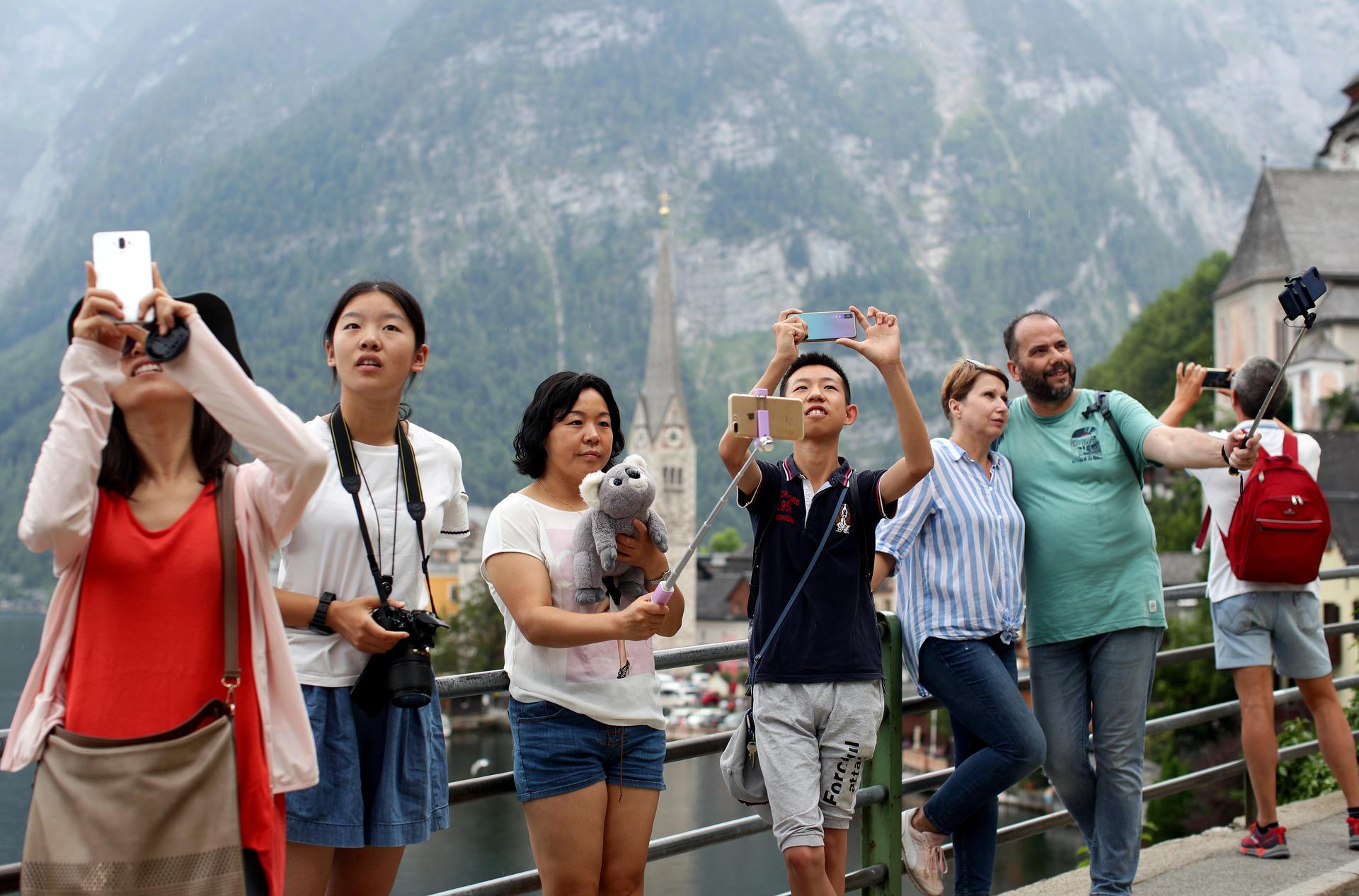How did tourism become so popular?
Tourists use their smartphones to take pictures near Hallstaettersee lake in Hallstatt, Austria.
Humans have always traveled, but tourism is now one of the biggest industries in the world, worth trillions of dollars and contributing to about 1 in 10 jobs internationally. Centuries ago, humanity had no need for — and no interest in — going to places like beaches or mountains for the sake of leisure. That’s according to University of New England history professor Eric Zuelow. In his book “A History of Modern Tourism,” Zuelow shares the story of how we learned to love travel and where the idea of the vacation even came from.
Zuelow traces it all back to the “Grand Tour” of the 17th and 18th centuries. Wealthy Europeans were initially paid by their governments to journey for educational purposes, such as preparation for diplomatic positions. These travelers came back boasting about stories of their amazing experiences, full of culture and newly-refined tastes — just like college kids after a semester abroad.
“We’re talking about 16-, 17-, 18-year-old men who are going to the continent … and the way most of them spent their time was not learning languages and meeting the right people. It was drinking heavily, gambling and seeing prostitutes,” Zuelow said. ”Then they would come back to England and they hadn’t learned any languages, but they wanted to show that they’d had this experience. They would wave their arms around wildly expressing their points, speaking with these affected accents, refusing to eat the good roast beef of England — which just freaked out their parents.”
Related: Are online travel platforms responsible for your safety?
The wealthy couldn’t keep that grand experience to themselves forever, though. With the advent of steam power, the opportunity for travel widened, but it took more than just new forms of transportation for tourism to continue its spread.
“It’s not just technology that drives development of more democratized tourism,” Zuelow said. “You have to want to travel, so you have to learn that, and that happens through travel writing and guidebooks and so on. You have to have enough money to travel, so technology is going to widen the number who have enough money, and you have to have enough time.”
Bit by bit, travel came to the masses, both through our own growing interest in it and from some nudges from our governments during times of international turmoil.
“There were three competing political ideologies essentially that defined 20th-century history: you’ve got democracies, you’ve got communism, and you’ve got fascism,” Zuelow said. “All of those saw tourism as a way of promoting their ideology and a way of promoting their agenda, and so they developed organizations and institutions in order to use tourism to communicate with the people, to draw the people together.”
These days though, travel for the individual tends to be more for personal reasons than ideological ones, and, in recent years, tourism has exploded into a global industry. In 2018, tourism was responsible for $8.8 trillion of the world’s gross domestic product and 319 million jobs. That bears repeating: 319 million jobs worldwide from tourism.
Related: Squatters occupy Venice homes in housing protest as tourism surges
“It’s something that we don’t necessarily talk about,” Zuelow said, “and yet tourism is this just massive thing.”
An industry of that size naturally comes with downsides. In particular, the toll of “overtourism” can already be seen in places like Venice, where overcrowding is becoming a serious issue, and Mount Everest, which had one of its deadliest years on record due to the growing turnout of hopeful climbers. The environment is also at the forefront of concerns when it comes to tourism. Reportedly, tourism is responsible for 8% of global greenhouse gas emissions.
Still, it doesn’t seem as if tourism is going anywhere any time soon — lots of us have planes to catch.
Sarah Leeson is an associate producer at Innovation Hub.
